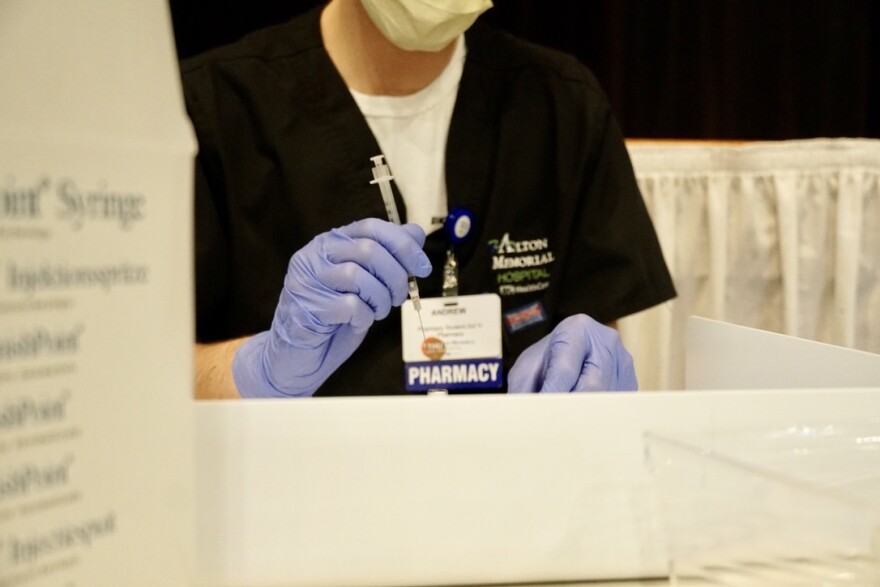Missouri is one of several states that last summer announced a lottery to reward people who get the COVID-19 vaccine and entice others to get the shot.
Since Gov. Mike Parson announced the $900,000 lottery in mid-July, more than 668,000 doses of the vaccine have been administered to Missouri residents.
But only 45,000 of the adults who received the vaccine since the giveaways began entered the statewide drawing, a state health department spokeswoman said. That's fewer than 15% of the more than 600,000 people who have entered the drawing, which ends next month.
Still, Missouri State Health Director Donald Kauerauf thinks the lottery has been successful. He said the state is using multiple approaches to inspire people to get the shot, and every strategy helps.
“There’s not a single initiative that is the golden ticket to get everyone to get vaccinated,” Kauerauf said. “That doesn’t exist. If it did, every state in the country would do it.”
The lottery awards $10,000 prizes to people who have gotten at least one dose of the vaccine. The 900 winners are split between those who received the vaccine before the lottery was announced and those who received it after. The state announces 180 winners every two weeks.
The fourth of five drawings is this week.
It’s difficult to identify the reasons people get vaccinated, said Chris Prener, a sociologist at St Louis University who tracks coronavirus and vaccination data.
“It’s not like we're systematically tracking why people are getting vaccinated when they get vaccinated,” he said.
Prener questions the lottery’s effectiveness, given that the average number of daily vaccinations in the state was already increasing this summer before the lottery was announced. The number peaked in August before decreasing again.
Nearly 55% of Missourians 12 and older are fully vaccinated.
The delta variant-fueled surge in cases could have prompted people to get vaccinated. The federal Food and Drug Administration’s full approval of the Pfizer vaccine in August and several companies’ vaccine mandates could also have driven the number up.
Incentive programs sometimes discourage people and sow distrust of the vaccine, Prener said.
“People see a lottery and say, 'Well, if it's such a good thing, why do you need me to get paid to do it?'” he said. “For public health folks, they don't want to draw people's minds to a place where there isn't just innate good in vaccination.”
Academics have published several studies on the effectiveness of lotteries and other vaccine incentive programs in the past few months, with conflicting assessments of their effectiveness.
One study, published in the Journal of the American Medical Association, found that Ohio’s “Vax-a-Million” vaccine lottery had little to no effect on vaccine uptake.
Rewards can help encourage people to get medical care, said Dr. Monica Gandhi, an infectious disease professor at the University of California, San Francisco who has studied incentives for public health measures to reduce HIV rates.
However, when rewards are left up to chance, as with a lottery, people are less likely to be motivated, she said.
The most effective way is to pay people to get vaccinated — to the tune of a couple of hundred dollars at least, Gandhi said.
“It's usually, frankly, money,” she said. “Not an offer of money, like a lottery. But money.”
Because Missouri’s lottery has a higher number of winners with smaller payouts, people might be more likely to take part in the lottery here than in a state with smaller numbers of big-ticket winners, Gandhi said.
Most people who take part in lotteries probably don’t need much persuading, she said.
“What we saw across the country was that incentives worked better when people were likely going to get the vaccine anyway,” she said. “And so even something small, like doughnuts and a beer, all of these were working.”
Follow Sarah on Twitter: @petit_smudge





